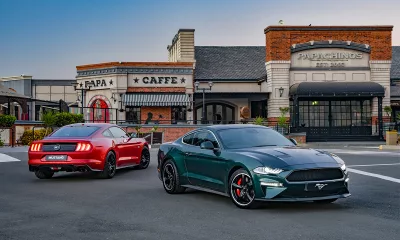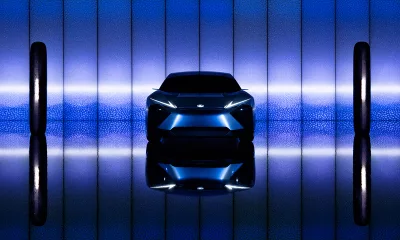
Global NCAP and the Automobile Association of South Africa have released the results of their third batch of crash testing, this time rating SA-spec entry-level versions of the Toyota Avanza, Honda Amaze and Suzuki Ignis.
In November 2017, Global NCAP partnered with the AA to launch the “Safer Cars for Africa” campaign in South Africa, releasing independent crash-test results of five budget vehicles. A year later, the two organisations teamed up again to evaluate four other popular local vehicles (including a zero-star bakkie).
Now the results from the third round of testing have been released, with Global NCAP saying the three models tested showed “reasonable safety performance for adult occupants but disappointing results for child occupant protection”.
Global NCAP chose the entry-level versions of the vehicles, each fitted with at least two airbags as standard. The models in question were the Toyota Avanza 1,3 S (R234 100), the Honda Amaze 1,2 Trend (R179 900) and the Suzuki Ignis 1,2 GL (R176 900).

The Toyota Avanza managed to score four stars for adult occupant protection despite the structure and footwell area being rated as “unstable”. The global safety authority reported the restraint systems in the car “worked properly” and, together with the two seat-belt reminders, “just met” the requirements to achieve a four-star safety rating for adults. However, the Avanza achieved only two stars for child occupant protection, explained by the detachment of the rear bench from the anchorages to the structure of the car (as it was pulled by the child-restraint system housing the three-year-old dummy and attached using Isofix).
Meanwhile, the Honda Amaze achieved a “solid” four stars for adult occupant protection in the frontal crash test at 64 km/h. The vehicle structure was rated as stable, as was the footwell area. The car offers seatbelt pretensioners for both front passengers and a seatbelt reminder for the driver. But, using the child seats recommended by Honda, the Amaze had to make do with a single-star rating for child occupant protection. The child dummies contacted the interior of the car, showing evidence of head exposure and the probability of injury. In the case of the 18-month-old child-restraint system, the armrest opened during the crash, breaking the handle lock and causing a rotation that ended with the head of the dummy contacting the backrest.
And, despite using a child-restraint system with Isofix, the three-year-old dummy’s head contacted the interior of the car in the rebound phase. Both head contacts brought the head score to zero and with the broken child-restraint system for the 18-month-old dummy, the full points for the dynamic test for this dummy were lowered to zero.
And the Suzuki Ignis? Well, it scored three stars for adult occupant protection, although the vehicle structure was rated as “unstable” with Global NCAP reporting it offered “weak chest protection for the driver”. The Ignis achieved a low score for child safety since Suzuki did not recommend a child-restraint system for the test.
“Global NCAP considers that car manufacturers are responsible for all occupants in the car and for this reason they must always recommend the [child-restraint system] to be used in the test. When they decline to do so, the car manufacturer is not awarded points during the test,” the safety authority said.
The AA and Global NCAP also pointed out that while the entry-level SA-spec Ignis has two airbags and ABS as standard, the European version of the vehicle adds a further four airbags and electronic stability control.
“These results are encouraging but indicate more work needs to be done to protect child occupants in vehicles. While we have minimum safety standards for vehicles in South Africa, we need to appreciate that minimum is not good enough,” said Sikkie Kajee, chairman of AA South Africa.
“At the same time, we want to encourage consumers to be more critical of safety features on vehicles before purchasing, and to be more mindful of their own, and their passengers’ safety,” Kajee suggested.
David Ward, president and CEO of Global NCAP, added he looked forward to the first five-star car in Africa.
“Global NCAP welcomes the four-star performance achieved in our latest crash test results but we are disappointed in the levels of protection provided for child occupants, the most vulnerable of car passengers.
“We look forward to the first five-star car in Africa, and encourage auto manufacturers to meet our five star challenge and provide the levels of safety performance necessary for all passengers, whatever their age,” Ward said.
Watch the crash-test videos below…
See Full Honda Amaze price and specs here
See Full Toyota Avanza price and specs here




